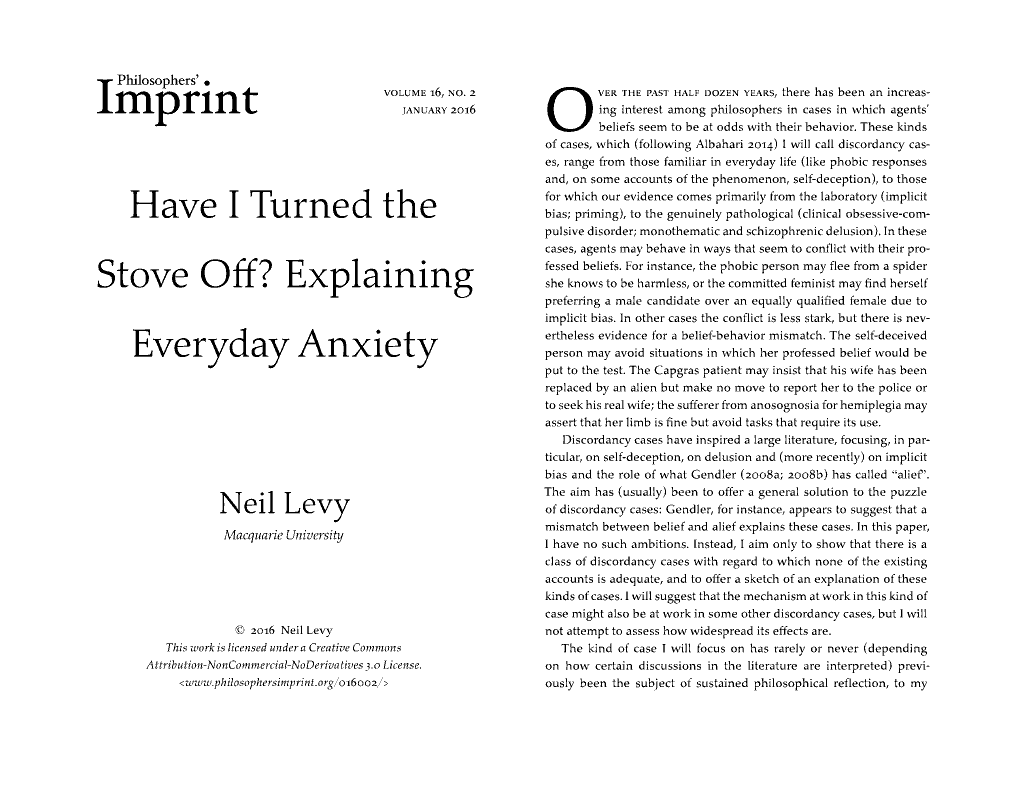Have I Turned the Stove Off? Explaining Everyday Anxiety
Skip other details (including permanent urls, DOI, citation information): This work is licensed under a Creative Commons Attribution-NonCommercial-NoDerivatives 3.0 License. Please contact [email protected] to use this work in a way not covered by the license.
For more information, read Michigan Publishing's access and usage policy.
Abstract
Cases in which we find ourselves irrationally worried about whether we have done something we habitually do (such as turning off the stove) are familiar to most people, but they have received surprisingly little attention in the philosophical literature. In this paper, I argue that available accounts designed to explain superficially similar mismatches between agents’ behavior and their beliefs fail to explain these cases. In the kinds of cases which have served as paradigms for extant accounts, contents are poised to drive behavior in a belief-like way. But the contents of these irrational worries are not poised in a belief-like way. Nor do they cause behavior due to a deficit of rational scrutiny. Rather, these representations cause behavior deviantly: by generating anxiety, which in turn motivates actions aimed at assuaging it.



